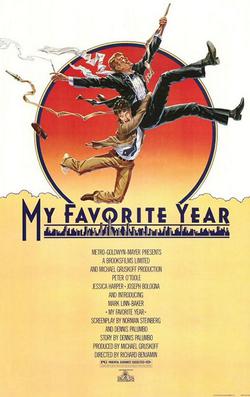THE GREAT AMERICAN PASTIME
Welcome to Rick's Texan Reviews Annual Opening Day Movie Review, where I look at a baseball-related film to coincide with the AAA Opening Day for the El Paso Chihuahuas. This year, I look at the funny frolics of Little League.
Long before we had the Bad News Bears, we had the Willow Falls Panthers. The Great American Pastime looks at the dangers of Little League Baseball, from pushy parents to dirty players. While essentially a B-film, The Great American Pastime has just enough charm to carry it over.
Bruce Hallerton (Tom Ewell) loves watching baseball, but he is not big on other things, such as his wife Betty (Anne Francis) or son Dennis (Rudy Dee). A surprise opportunity for father-son bonding comes up when a group of fellow attorneys ask him to be their Little League team manager. Unfortunately for Bruce, Dennis is placed on a rival Little League team. Still determined to make the best of it, Bruce continues managing the disastrous Panthers.
The poor record does not win him any fans among the Panthers' parents save perhaps for one: the luscious Doris Patterson (Anne Miller). This femme fatale of the Little League set always laughs at Bruce's jokes, invites him (and his family) to dinner and appears delighted to be near the plain Bruce. Betty clearly dislikes this black widow, much to Bruce's confusion. Bruce now has to content not only with Betty's growing green-eyed monster but Dennis adopting the questionable "win-at-all-costs" attitude the Tigers have. Will Bruce grow to bring at least one win to the hapless Panthers? Will he let Doris down easy? Will he get a big surprise from Doris and Betty?
The Great American Pastime is fully aware that it is meant to be a bit light. As such, I judge it on whether or not it entertained me and made me laugh. It did this mostly well.
What did surprise me was in how almost progressive The Great American Pastime is when it comes to adultery and sex. Granted it was a bit in double entendre and suggestions, but it worked quite well. Remarking on what he considers Doris' best attributes (raising a son as a widow), he says, "I take my hat off to her". Betty instantly fires back, "Please make sure that's all". After an outraged Doris crushes Bruce's dreams of a mistress, she informs him that she was only buttering him up to get a favorable position for her son Herbie. As she orders him out of her house, she gives him a parting shot. "Now run along and...play with your marbles".
Read that any way you like.
The Great American Pastime also features two black players. Sadly, we never heard from them or the parents, but I find it a step forward.
The performances range from the amusing to the tolerable. Tom Ewell is pleasant enough as Bruce, a put-upon man who creates his own disasters. Appropriately silly when working with Doris, he does not do so well when bemoaning his situations to Betty. Francis is a bit weak as Betty, but to be fair it was not a great part. The thought of Miller as this Little League temptress is amusing, more so given the plain-looking Ewell. However, she did quite well in the role. The Great American Pastime is also an early role for Dean Jones as the eager young coach. Bruce's voiceover description of Buck Rivers has one of Nathaniel Benchley's clever lines: "His teeth were so white they made me nervous".
We get a lot of amusing zingers in The Great American Pastime. Early on, Bruce describes his team as "a nest of midgets". Later on, he attempts to make Betty sympathetic to the black widow Doris by telling her that her husband "disappeared into the jungle". "What was he: a baboon?" she derisively responds. After a disastrous game, Dennis is talking about the results with the family dog, Smidgen. An irate Bruce asks that Dennis stop. "Why? You afraid he'll get your job?", Betty replies.
One thing that I think was a flaw was in having Ewell address us directly in the opening and closing. I think we could have done without the voiceovers too, though it is not a deal-breaker for me.
At a brisk 90 minutes, The Great American Pastime knows when to start and when to finish. A light affair, The Great American Pastime may not be great itself, but it is pleasant enough and fully aware.
2024 Opening Day Film: Mr. Baseball
2023 Opening Day Film: Angels in the Outfield (1954)
2022 Opening Day Film: Bull Durham
2021 Opening Day Film: Alibi Ike
2020 Opening Day Film: Mr. 3000
2019 Opening Day Film: Ladies' Day
2018 Opening Day Film: Fear Strikes Out
2017 Opening Day Film: Eight Men Out




















